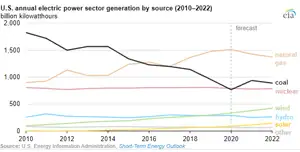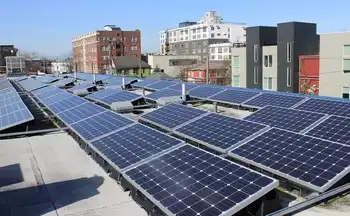Free EV charging: is it enough?
- Early adopters of innovative technology often sacrifice price and quality to be the first to have a product. With some products, it works out while with other products, the technology either morphs into something better or is completely discontinued.
With all electric, plug-in Nissan and Ford cars, early adopters will reap the rewards of something far better than improved gas mileage or innovative technology. Try free energy.
Plug-in electric cars present a unique challenge for consumers looking to save money by switching to electric batteries from the standard alternative, gas. While it may be enticing to dream of never filling up at the pump again, it certainly isn't all that cost effective or convenient.
The elevated price and increased electricity bills make plug-in cars a tough proposition for early adopters weighing out the cost and benefits.
Nissan's Chevy Leaf, for example, has a suggested retail price of $32,780 and the cost per charge, should be less than $3 for a 100 miles. In a down economy, that is still a hefty price tag.
To put the price into perspective, the Atlantic ran a break-even scenario with the Nissan Leaf and Toyota Corolla 30.5 average mpg priced at $15,450. Assuming gas prices stay the same, it would require a Nissan Leaf owner to drive 155,000 miles to finally break even with the Corolla. Considering the average car travels about 12,000-15,000 miles per year, that could be about 12 years before the Nissan Leaf pays out.
Now, that scenario is completely centered on price, and price is certainly not the only reason a consumer would buy a Nissan Leaf. Obviously, carbon emissions are a big factor for environmentally conscious consumers, but for price-conscious consumers, the cost of the Nissan Leaf could put a consumer over the edge, one way or the other.
For them, the government has stepped out the red carpet with all sorts of incentive programs for early adopters of select models like the Nissan Leaf and Ford Transit.
Ford and Nissan are offering free in-home charging stations for a limited amount of initial buyers. The first 5,000 Ford Transit buyers and the first 4,700 Nissan Leaf owners will receive free charging stations in select states.
Ford is able to provide the free stations for the Transit through a grant funded by the the Transportation Electrification Initiative through the American Recovery and Reinvestment Act, and Nissan will provide free stations for the Leaf through a U.S. Department of Energy grant with ECOtality.
Already, the Nissan Leaf provides a $7,500 tax relief program bringing the price tag down to as low as $25,280 and considering the installation of a home charging station costs about $1,500, early adopters of the Nissan Leaf could save as much as $9,000 on a new plug-in car. That is a big incentive for those on the fence looking to buy a Leaf.
Perhaps even enough incentive to be one of the first to own a Nissan Leaf in December.
The question when all is said and done will be, can electric cars stimulate demand without government grants and programs?
Related News

ETP 2017 maps major transformations in energy technologies
BERLIN - The global energy system is changing. More people are connecting to the grid as living standards improve around the world. Demand for consumer appliances and electronic devices is rising. New and innovative transportation technologies, such as electric vehicles and autonomous cars are also boosting power demand.
The International Energy Agency's latest report on energy technologies outlines how these and other trends as well as technological advances play out in the next four decades to reshape the global energy sector.
Energy Technology Perspectives 2017 (ETP) highlights that decisive policy actions and market signals will be needed to drive technological development…




